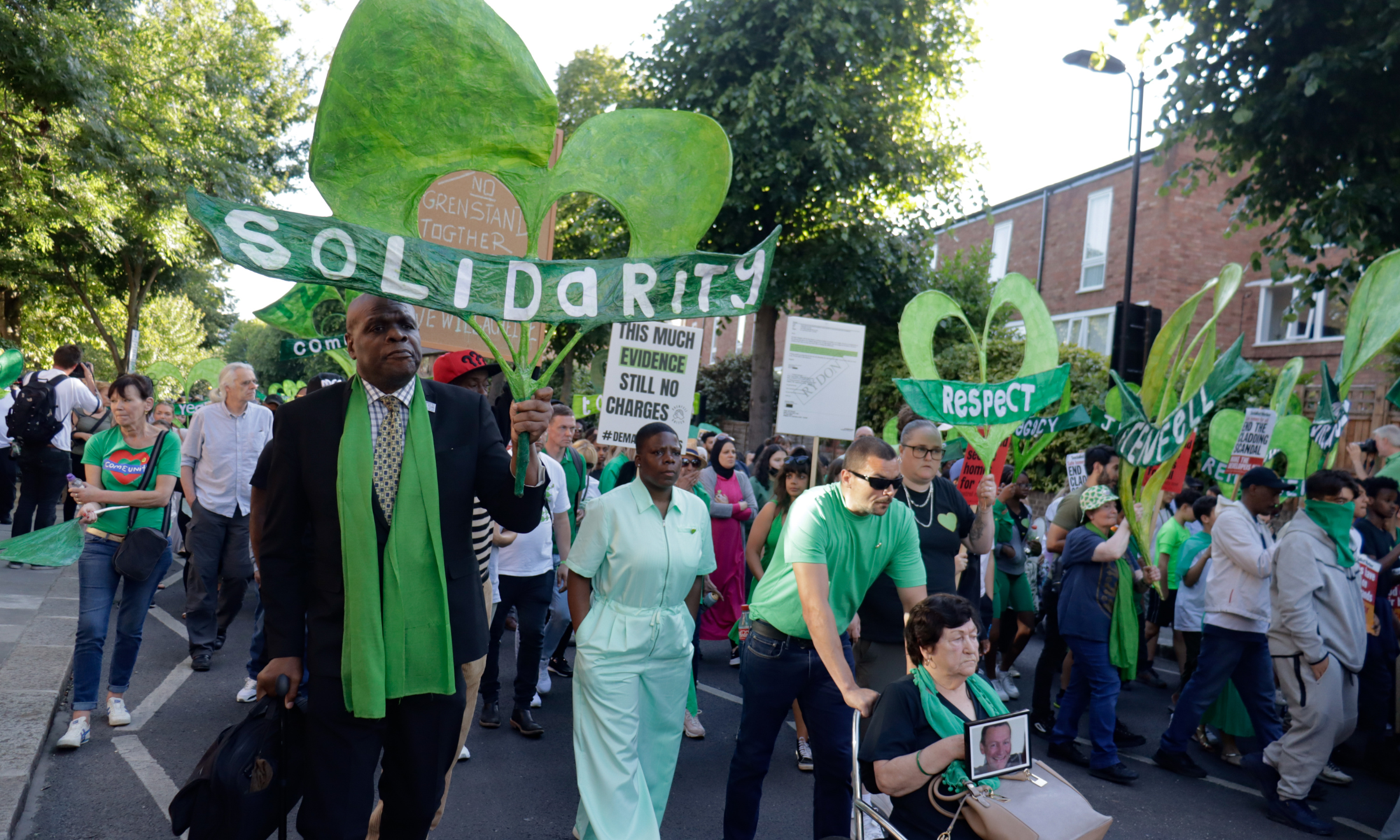
Twitter @RentStrikeCam
Britain’s lockdown mess is hitting vulnerable university students the hardest
With a new lockdown in place, what’s happening to students on the ground?
Mishti Ali
07 Jan 2021
When Boris Johnson announced the third lockdown this week, there was one glaring omission from his statement: students. Young people at university have responded with anger, confusion and resentment across the country as they’ve scrambled to work out what their current path of action is. When can they go back? What will happen to their accommodation? What about exams and dissertations?
The current guidelines show that these decisions have largely been left up to institutions’ discretion, leading to complaints that students are being left in the lurch with no say in the matter while their fates are decided. Many have decided to organise in response, leading to a widely circulated petition to enable all students to end university tenancy agreements early.
The pandemic continues to widen gaps, disproportionately affecting the most disadvantaged groups such as students of colour, working class students, those facing housing precarity (particularly estranged and care experienced students), students dealing with mental illness, international students, and queer students in hostile home situations.
“The pandemic continues to widen gaps, disproportionately affecting disadvantaged groups such as students of colour, working class students and those facing housing precarity”
With an overcrowded job market, little casual work available, and unemployment sky-rocketing, students with fragile financial situations are no longer able to support themselves. There have also been instances of racial profiling as uni halls locked down and some students have been fenced in their accomodations. So it’s no surprise that students’ mental wellbeing is also suffering. One mental health charity found that 73% of students said their mental health declined during the previous lockdowns.
There’s also a stark difference in how different universities are handling the pandemic depending on how rich they are. Universities like Cambridge are buying up stocks of coronavirus tests for their staff and students. Meanwhile, students at Manchester Met being left to isolate in low-quality housing, and self-isolating students at Lancaster being made to pay £17.95 daily for sub-par meals.
So what’s the situation like on the ground? gal-dem spoke to university students around the UK following the latest lockdown announcement:
“I’m not the only student in the world with a child, so I’m not the only student with childcare responsibilities”
Sheeren*, 21, is a first year maths undergraduate student at LSE, juggling her degree while caring for her daughter.
It’s really disappointing because the government knows there are students who have children. I’m not the only student in the world with a child, so I’m not the only student with childcare responsibilities. There’s nothing for us at all. They expect us to still do our degree and exams, but they’ve given us zero support.
My daughter is four years old and she’s just started reception. During the last lockdown, schools were open, childminders were open, it was okay. That’s still the information on the government website, but this isn’t the case any more. There’s been such contradictory advice surrounding childcare.
I had my daughter when I was 17 and I went and did my A-levels. I took some time off to spend with her and then I got to one of the top universities in the country. To be left with no support has crushed me. I feel so lost.
“Vulnerable students with existing issues and difficult situations have definitely been left behind and forgotten”

Bristol [University] has failed students with how they’ve dealt with the whole pandemic. At the beginning, we were told that we’d have a normal uni experience and that they’d have put systems in place to deal with the situation. When we got there, it was very clear that that wasn’t the case. One of the things that people were really angry about was that we haven’t had regular check-ins for our wellbeing, which they promised. Like, the food boxes they sent out to people who were isolating literally weren’t enough to live off for two weeks.
I’d say vulnerable students with existing issues and difficult situations have definitely been left behind and forgotten. There’s been little additional support or safety nets for them to fall back on if they can’t just carry on as normal like everyone else. Class would probably be the biggest factor, obviously those who don’t have the space/ability to continue their degrees at home are finding it really hard now being told they shouldn’t move back to their university accommodations.
Also, a lot of students rely on part time jobs to pay their rent and other fees (which they’ve not been able to get this year) and some students’ parents may have lost jobs, so working class students may find themselves in really hard situations financially whilst still being forced to pay the full amount of rent. There aren’t many concessions beyond the regular bursaries that are being put in place to counter this.
We’ve been left to our own devices, feel like our wellbeing is never a priority, and rather, we were brought back primarily for financial extraction.
“I don’t know a single student that is, like, mentally doing okay”
Rebecca, 20, enrolled for her third year of her undergraduate law degree at Brunel at the start of this academic year. However, faced with studying in lockdown, she decided to take a year out.
I feel like we were tricked into moving out to university and it was just such a waste of money. I didn’t think the online teaching was worth £9k, [and was] receiving no updates from the uni on how many coronavirus cases were on campus.
[My main concern] was that the rental contracts they’ve given us and made us sign. They knew people would want to move out [during the pandemic], so they’ve made a policy where if you move out, you have to keep paying rent until somebody else takes your room. They’ve just left us in a situation where we’re out of pocket for it.
In March, we put pressure on [the uni] and then they allowed us to move out. But then this year, they just can’t deal with it. I know it’s Covid-19 and that, but I just feel like they could be doing a lot more. For example, I have a friend who hasn’t had working WiFi in her room since September. She’s emailed 10-15 times now, asking for reimbursement or meetings, and they keep saying to email it, but since [the uni staff] are working from home now, it’s so hard to get their attention.
We’re really at the limit. I don’t know a single student that is, like, mentally doing okay. The least [the university] can do is make us feel like there’s been some consideration and give us a reimbursement of some sort.
‘It’s really clear across the UK that the landlordism of unis has made them so irresponsible”

Personally, I already had to finish my BA from my kitchen in 2020 and I really can’t do that again this year, so even though I’m aware of the risks objectively, I still want to be in Oxford, where I can work better. The main consensus I’ve seen is people wanting unis to be totally shut, but obviously, a lot of students are quite vulnerable at home, and especially with postgrads like myself, there should be more leniency.
It’s really clear across the UK that the landlordism of unis has made them so irresponsible. My brother lives in halls at Imperial and they’ve pretty much been on a permanent lockdown, when the obvious public health decision would’ve been not to let the students move in in the first place. I would say the fault definitely lies with broader uni administration / the vice chancellors, and also the government, of course.
Ultimately I want the destruction of capitalism and for us to stop neoliberalising education and to make uni free and all that! And that will always be the goal. In the short term though – like between now and June 2021 – I’d want all exams cancelled, rent to be significantly reimbursed, tuition fees for international students reimbursed – maybe down to home status – funding to be extended for PhD students, and in general, allowing people to suspend studies without issue.
“I’m not certain how my family would react if I was out, but it wouldn’t be easy”
Ebony*, 18, is a queer first year undergraduate student at Oxford, currently in lockdown in a hostile family situation.
Moving from uni to home means moving from a place where I can be completely open about myself and my sexuality into a space where I just can’t be. I’m not certain how my family would react if I was out but it wouldn’t be easy (at least at first), which means it’s basically having to cut off a pretty major facet of my life while I’m at home, which is stressful at the best of times.
Now there’s no clear timeline of how long I’m at home, it’s more stressful. My family love me but I’m not sure they always like me and that’s leading to a fair amount of internal tension; hell, even giving this interview feels like a betrayal in a way. It’s just a lot easier when I’m in my own space, to be able to be myself more freely and express myself in ways that wouldn’t necessarily make my parents comfortable at home.
To put it simply, it means that it’s harder to concentrate and harder to study. Overall I will do worse as a result of being at home whilst still being expected to maintain the standards I set last term. I’m sitting my first formalised exam at home and I know that it’ll be much harder for me and I will likely do a fair bit worse than I’d have done at uni.
I know that it’s a little entitled but I worked really hard and left home for a reason, so being made to stay home is a little tricky. Equally, I’m not in an actively dangerous situation and I know that if I applied for early return, it would hurt my parents, so I’m not going to.
*names have been changed
Interviews have been edited for length and clarity.









